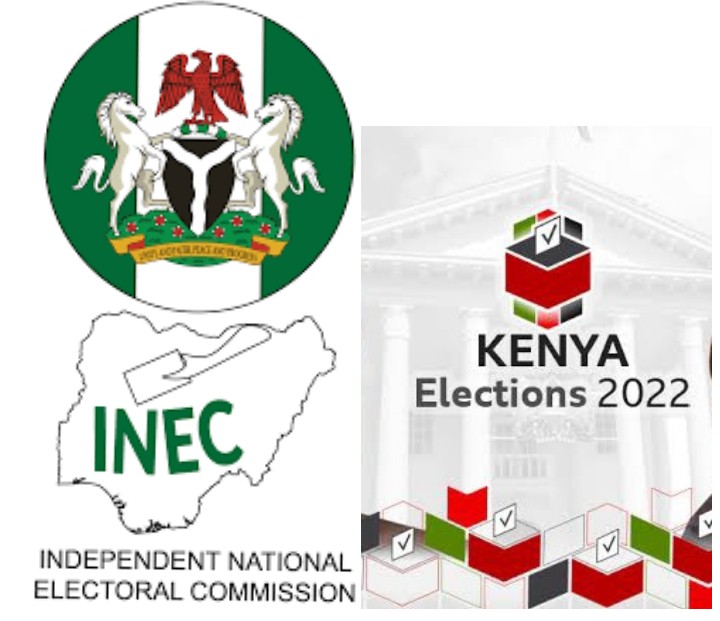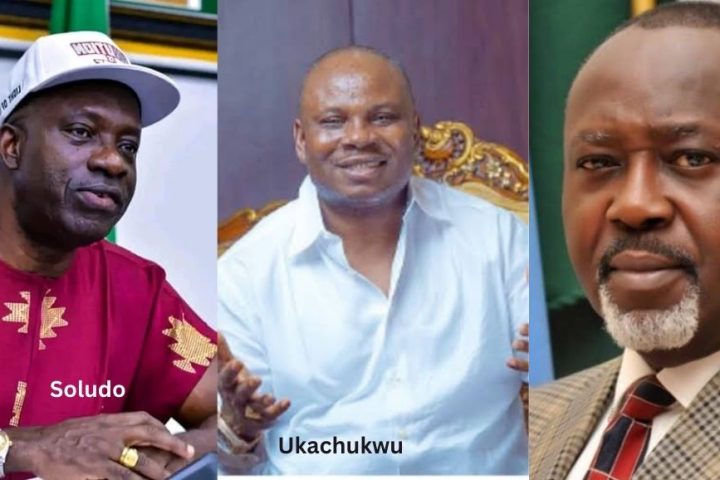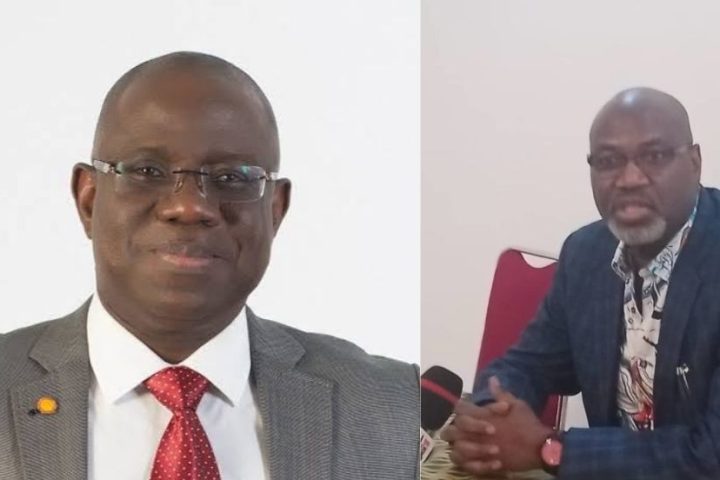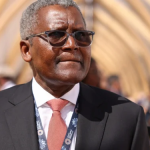The right to vote – and by extension Diaspora voting – is a crucial one that has been enshrined in the constitution of every country around the world to give citizens the opportunity to elect their leaders.
Though this right has constitutional backing, for some countries in the world, most especially developing countries, it only applies to citizens residing in such countries. Those in the diaspora are still disenfranchised and Nigeria is swimming in that water.
Join our WhatsApp ChannelCitizens’ right to vote from the diaspora has been enshrined in the constitution of some African countries like Kenya, Angola, South Africa, Ghana, and Mozambique. Nigerians abroad are dreaming of such a possibility but the political class, those in the corridors of power apparently lacks the political will to implement such a system considered a noble one.
READ ALSO: Kenyan Elections 2022: Citizens Vote From Diaspora
It was to the displeasure of many citizens when in March, the National Assembly voted overwhelmingly against diaspora voting in Nigeria despite calls from the Independent National Electoral Commission and Nigerians living abroad advocating its implementation.
Figures released by the National Assembly showed that 29 Senators and 58 members of the House of Representatives voted in support of the bill, while 62 Senators and 240 Representatives voted against the bill.
It is of grave concern that a country like Nigeria, the largest economy in Africa with over 200 million citizens with about 20 million citizens abroad, still lacks the political will for overseas voting, while countries that are looking up to Nigeria have recognized the importance of giving every citizen no matter where one resides, the opportunity to have a say on who becomes their leader.
READ ALSO: Dabiri-Erewa Hails Nigerian Diaspora On GDP-boosting Remittances, Pushes Diaspora Voting
Kenyans during the just concluded 2022 presidential elections, had the opportunity to vote from 12 countries around the world, including South Africa, the United Kingdom, and the United States of America; 10,444 citizens of the East African country registered to vote. This right came to be after several lobbying and constitutional reforms in 2010.
Overseas voting is a key electoral reform that would bring citizens living abroad closer to the happenings in the country but yet no diaspora voting or even possibilities despite the contributions of the diaspora community to the Nigerian economy in terms of diaspora remittances.
READ ALSO: Peter Obi In California, Says Diaspora Remittances Dwarf FDIs
According to data from the World Bank and Nigeria’s Budget Management Office, Nigerians living abroad remitted $60.22bn in three years.
The World Bank revealed that remittances into Nigeria were estimated at $23.81bn in 2019 and the Ministry of Finance, Budget and National Planning, disclosed that Diaspora remittances were $17.21bn in 2020 and $19.2bn in 2021 and it is said to rise in 2022. Yet, arguments have been put forward against diaspora voting. People have argued that diaspora voting shouldn’t be allowed in the country because a lot of citizens are disconnected from the country.
According to them, a lot of people have not been in the country for over 20 years and don’t even bother about Nigeria, so what is the essence of the diaspora voting for them?
Other people have said that the Independent National Electoral Commission lacks the ability to carry out elections within the country without hitches, how well would they handle votes from the diaspora?
Despite the polemics, the Electoral Commission has time without number, expressed its readiness to try diaspora voting.
Another mud in the water is the lack of data on all Nigerians domicile abroad. This, some people claim, is a serious bane to hosting Nigerians abroad during electioneering.
The United Nations says 1.7 million Nigerians live abroad and the Ministry of Foreign Affairs says about 20 million Nigerians stay abroad. So how do we know who is a legal Nigerian abroad without comprehensive data?
All this put together has led to bad consequences for the country. A lot of the citizens abroad do not bother about the happenings in the country because they don’t have a say in any matter in the country. What is the essence of caring, if, at the end of the day, I don’t have a say in who becomes the leader in the country, some of them have said at different times.
The citizens who have keen interest and registered, especially the political class, would continue to fly into the country whenever it is time for voting instead of voting from their comfort zone. It is high time we did away with all manner of restrictions on voting from abroad.
Kenya entered multi-party democracy in 1992 and within 18 years, they were able to make constitutional reforms that ushered in diaspora voting that came to be in 2022.
Nigeria has a democracy that is 23 years old, yet all we have is rejected bills from the national assembly.
Some politicians keep ignoring INEC whenever they say they are ready to conduct diaspora elections. If we don’t make those reforms and take a step, we’ll keep on lagging behind in our journey of democratic sustainability.
Chairman of INEC, Professor Yakubu Mahmood had on several occasions indicated that the commission is ready to give Nigerians in the diaspora the opportunity to participate in elections. “INEC is committed to providing Nigerians living outside the country the opportunity to have a say in who becomes our leaders at various levels. I hope that the legal and constitutional obstacles to voting by Nigerians in Diaspora will soon be removed so that Nigerians, irrespective of where they live around the world would have the opportunity to vote in future elections,” Yakubu had said in one of his public engagements.
The claim that Nigerians abroad are disconnected lacks credibility because a lot of them still make trips to come vote during elections. Nigerians in the Diaspora Commission Chairperson, Abike Dabiri-Erewa said “We cannot give up on diaspora voting. It’s not going to happen in 2023, but it’s going to happen eventually and I urge all of you (the media) to make it a focal point of discussion so that the National Assembly will do what they have to do and make it possible for people in the diaspora to vote.”
She had also said “If you’re waiting for perfection, then nothing will happen. You know, INEC is ready, and in a world where we are now doing electronic transmission of results, it is possible. So it’s just to engage with the National Assembly more,” she said.
Kenyans did not achieve this fit within one year. The reform was done in 2010 and after years of preparation and putting things in place, 10,000 citizens voted.
The national assembly, the Independent National Electoral Commission, and other bodies involved in the electoral process in Nigeria need to look at what Kenya and other countries have done well and learn from it.
The politicians in the National Assembly need to know that, empowering citizens abroad to vote would encourage more participation from abroad. There would be no need for the politicians to keep on dancing to UK without any substantial result for their skills.
To the national assembly and INEC, we don’t need to start fully on the implementation of diaspora voting. The presidential election should be a project for testing the waters just like in Kenya. South Africa implemented voting abroad in the 1994 presidential elections and all errors made during that elections were corrected in subsequent elections.
A member of the ruling All Progressives Congress (APC) has also added a voice to the call for diaspora voting in the country. Deputy national secretary of the APC, Yakubu, Murtala Ajaka made the call in a paper he titled “Nigeria’s 2023 Election: Young Nigerians in Diaspora as Stakeholders in the Birthing of the Next Dispensation,” which he delivered to young Nigerians in London.
He said “the right of Nigerians in the Diaspora to vote during elections as critical stakeholders give them the opportunity in the rebirth and of course, nurturing of our democracy and a better Nigeria. This provides Nigerians in the Diaspora the opportunity to vote for leaders with the zeal and commitment to move the nation forward and improve the lives of the citizenry.”
The APC chieftain should know that implementing what he has advocated lies in the palm of his party members and fellow politicians.
Rome, they say, was not built in a day. If we don’t start creating the foundation for a better electoral process that is very much inclusive no matter where one may be, citizens outside the country would continue to feel alienated and disenfranchised if diaspora voting is not passed into law soonest.



















Follow Us